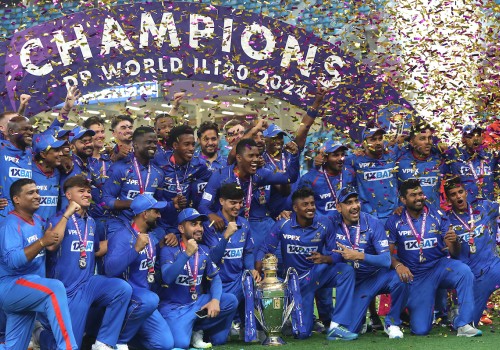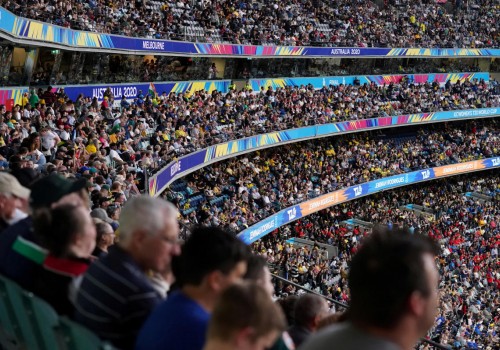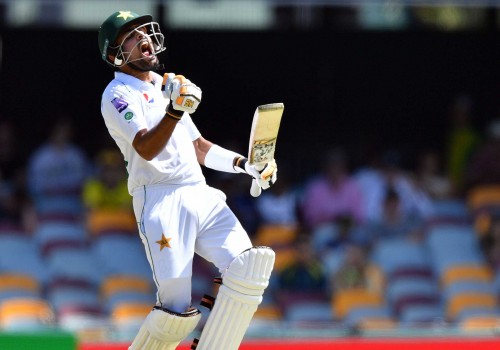Cricket in recovery Down Under
Then the explosively independent Longstaff report on the scandal was published, in which it said that Cricket Australia was “arrogant and controlling” and partly to blame for the incident back in March and nurtured a culture of “winning without counting the costs”. Frankly, Peever simply had no choice other than to walk after such a damning condemnation of Australian cricket.
Earl Eddings, who has been a director on the board for 10 years and took temporary charge for four weeks following Peevers abrupt departure, has since been named permanent chairman of Cricket Australia.
Whether his appointment, without unanimous support and therefore no united front, will steady the ship remains to be seen. Indeed some pundits are likening the situation to that of the West Indies Cricket Board. That said having been at odds with the players union, Australian Cricketers Association (ACA) for the past two years, both the governing body and the players representatives have at least made some overtures to end the running feud that has been sapping their international cricket prowess.
Nevertheless, disgraced former Baggy Greens Captain Steve Smith and his vice-captain David Warner, have a further five months to serve out of their one-year bans for orchestrating the ball-tampering debacle, bans which the ACA want curtailed. Meanwhile batsman Cameron Bancroft, who was caught cheating on live television, deliberately sandpapering the ball in play to damage it during the 3rd South Africa Test, will be eligible to return in December 2018.
With the ICC Cricket World Cup 2019 in England and Wales only months away, Australia are simply not firing on all cylinders at the moment and without these three key players are well below the performance radar in their build up to the ICC Cricket World Cup 2019, where they are traditionally much more at ease than most on English style pitches.
The team has won just 2 matches out of all 13 matches played in 2018, which represents a win ratio of 15.38 per cent, below Hong Kong on 16.66. In terms of their last 4 ODI series between 2017/18 and 2018/19 they have won a lowly 3 encounters out of fifteen. Their loss profiles are a dismal reflection on the state of the side: 4-1 to India in India, 4-1 to England in Australia, 5-0 to England in England and latterly 2-1 to South Africa in Australia.
Plus there is still considerable and voluble dissent about the way forward in Aussie cricketing circles. Australia captain Tim Paine was recently forced to openly refute criticism by former captain Michael Clarke that the national side was trying too hard to be liked. Paine assured media that his team were “not concerned about being liked one bit” by the opposition, had a collective focus on finding a way to win during this summer as well as improving their chances at the World Cup, while at the same time reclaiming the trust and respect of the Australian public.
Clarke created a tsunami of discontent with his comment that Australia “won’t win s**t” by “worrying about being liked”, although Simon Katich, his former teammate was quick to rebuke Clarke saying that he was “missing the point” in the toxically derogatory aftermath of the Newlands ball-tampering episode. Paine, who has established a sportsmanlike custom of shaking hands with opposing teams at the start of a series, pointed out that there was a significant void between earning respect and mounting a charm offensive to be liked by your opponents.
Paine further stood his ground, contending in his analysis that the Australian team’s approach had already moved on considerably, from the shell shocked bunch he had led onto the field to play the next game against South Africa in the wake of the ball-tampering crisis. He cited a team who had stood up to Pakistan in the first UAE Test in Dubai to force a draw before losing in Abu Dhabi, and the present mix who on home soil reinforced by the return of their best fast bowlers were fully prepared take the game to tourists India in the latest series.
“With Hazlewood, Starc and Cummins, that’s only going to help guys grow with confidence around them. With guys like Travis Head and Marcus Harris, when you’ve got Josh Hazlewood and Mitchell Starc and Patrick Cummins running in, it’s a bit easier to play that confident, aggressive style of cricket that Australia want to play and our team certainly wants to play.”
“No one has spoken about being liked, certainly by the opposition,” Paine went on to expand in interviews with journalists.
“We’ve spoken about wanting to get the Australian public’s trust and make sure that clearly you want the Australian public and cricket fans to like or love the Australian Test team. Certainly there’s that aspect, but from an opposition perspective we’re not concerned about being liked one bit.”
Following on from limited-overs captain Aaron Finch’s recent observations about the distinction between ensuring that the opposition had to contend with “hard cricket” as opposed to trying to put opposing players off their games verbally, Paine continued.
“Our No. 1 strength is our skill, so we’ve got to play hard cricket in terms of making it difficult for guys to bat against us and to difficult to bowl against us – we want to make it an uncomfortable environment for people to play against us, but we want to do it mainly by our skills.”
“We now know the difference between what’s right and what’s wrong, and what’s expected. We’re not going to be going over the top, but certainly you’ve got to stand up for your team and your teammates, and I’m sure when the time comes for that we’ll be doing that. But the main focus for us will be to play the best cricket we can.”
New ODI captain, Finch the man tasked with leading the Aussie charge into the ICC World Cup as 2019 approaches, while instilling some decorum into his squad still has work to do in terms of turning them into the hard cricketing unit desired. Nonetheless, like his ‘new era’ Test counterpart Paine, he is prepared to stand up and be counted while leading from the front.
Well it would be good to see Australia return to world cup cricket as a force to be reckoned with and perhaps there is more riding on their performance psychologically in the latest contests with India, than we are aware of. In full flow, Australia at their best can set any tournament alight. Although, while on the face of it having what observers would see as exceptional players like Smith, Warner and Bancroft back in the squad in time for the ICC World Cricket Cup as being essential, they may not fit the new philosophy.
So, as the administrative the dust hopefully begins to settle at Cricket Australia, allowing the relationship with the ACA, and therefore the players, to warm up, and results start coming good enough to restore at least some of that total Antipodean belief, will Australian cricket be in a better place in the New Year? Expat Sport’s Mac McTiernan would like to think so; no competition is the same without a relatively combative Baggy Green side included in the recipe.




